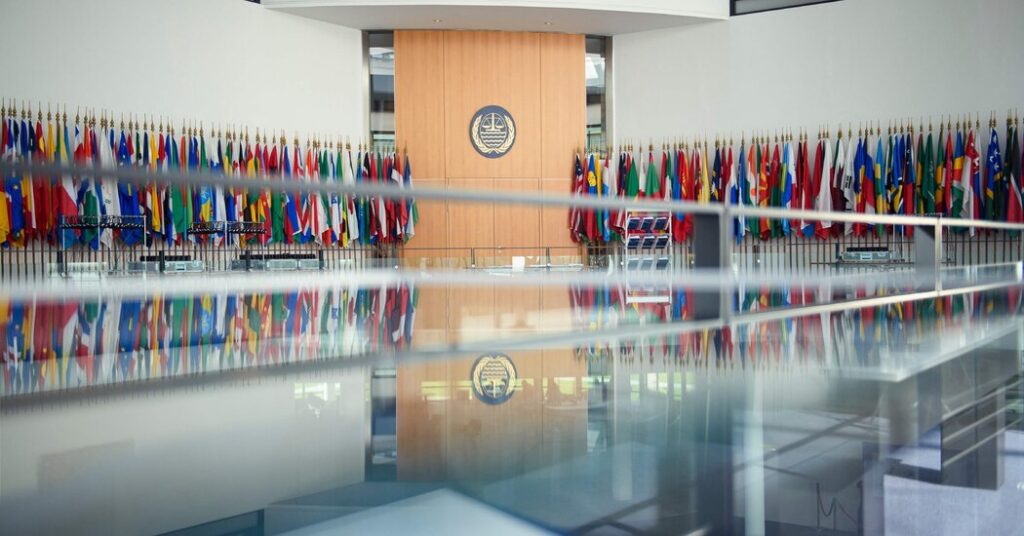In a groundbreaking opinion on Tuesday, the world’s highest court for ocean affairs said excess greenhouse gases were pollutants that could cause irreversible damage to the marine environment and emissions must be reduced.
The advisory opinion of the International Tribunal for the Law of the Sea is non-binding, but it states that countries must take all legally necessary measures to reduce, control and prevent marine pollution caused by anthropogenic greenhouse gas emissions.
The court’s 21 judges were unanimous in their opinion, which experts said could lead to broader damages claims against polluting countries.
Positions taken by the tribunal, sometimes known as the Ocean Tribunal, could also influence how other international and national tribunals respond to the growing dangers posed by climate change.
The ocean is vulnerable because the burning of fossil fuels releases greenhouse gases like carbon dioxide into the atmosphere, warming the world and causing sea levels to rise as glaciers and ice caps melt. Climate change also causes seawater heating and acidification, which in turn affects marine life and food chains, among other dangers.
The request for advice was made by some small island nations, which are already affected by rising sea levels as their coasts erode or become uninhabitable and fresh water used for drinking and growing crops turns to salt water. . The court’s opinion applies to more than 165 countries that have ratified UNCLOS, including big polluters such as China, Russia and India, but not the United States. (The Senate will not approve the agreement.)
The Convention is a legal framework covering the use of the oceans and their resources, including obligations to protect the marine environment.
The opinion released Tuesday effectively expands the definition of ocean pollution to include greenhouse gases. The convention, negotiated in the 1970s, makes no mention of these emissions and their adverse effects on the world’s oceans, which are based on the latest science.
“In the 1970s, we had no idea how serious these emissions were,” said David Freestone, co-author of last year’s World Bank report on the legal dimensions of sea level rise and who has been following the court hearings. Meeting and debate. “At the time, people were worried about acid rain.”
Key issues addressed by the court include whether excess greenhouse gases constitute “pollution of the marine environment” and, if so, whether countries can be held responsible for such pollution. The judges agreed.
The leaders of the island nations who filed the lawsuit argue that existing climate agreements do not make enough progress to prevent lasting damage to the oceans. They say that while they account for only a small fraction of global emissions, they are already bearing the brunt of the catastrophic effects of climate change.
“We got everything we wanted; we now have an authoritative definition of states’ obligations to avoid irreversible harm,” said Payam Akhavan, the island group’s chief lawyer. “We now have an authoritative definition of states’ obligations to avoid irreversible harm,” he added. The court “cited the best available scientific evidence”.
The judges also appeared to side with island nations that have long sought futile help, saying larger polluters bear greater responsibility than smaller, vulnerable ones and should be provided with financial help and technical assistance.
Activists at the court in Hamburg, Germany, sent messages praising the verdict. “For the first time, the International Court of Justice has recognized that the fate of two global common denominators, the ocean and the atmosphere, are intertwined and threatened by the climate crisis,” writes Joy Chowdhury of the Center for International Environmental Law.
Activists are increasingly raising concerns about climate damage against governments and energy companies, and have recently won rulings in their favour. In April, Europe’s top human rights court unexpectedly sided with some 2,000 Swiss women over the age of 64 who sued the government for not doing enough to prevent climate change. They say their health is at risk during heat waves linked to global warming.
Two other institutions, the International Court of Justice and the Inter-American Court of Human Rights, have also been asked to provide advisory opinions on the legal implications of climate change. Their comments were made later.

